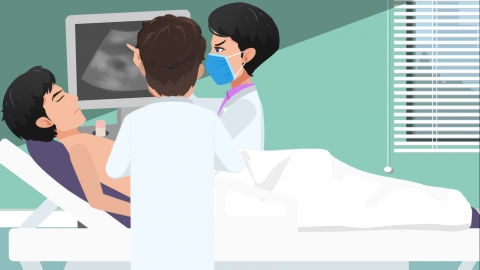What should I do if the wound becomes inflamed after minimally invasive appendectomy?
After minimally invasive surgery for appendicitis, wound inflammation can be managed by cleaning and disinfecting the wound, changing sterile dressings, using antibiotics as prescribed, monitoring changes in inflammation, and avoiding irritation to the wound. If wound inflammation occurs, seek immediate medical attention at a general surgery clinic.

1. Clean and disinfect the wound: Use medical-grade normal saline to rinse the surface of the wound and remove secretions. Then gently wipe and disinfect with iodophor to kill surrounding bacteria, reduce the risk of infection spreading, and maintain local cleanliness of the wound.
2. Change sterile dressings: After disinfection, promptly replace the wound covering with new sterile gauze. Choose breathable dressing materials and avoid wrapping too tightly, which may compress the wound. Regularly change the dressing to prevent moisture buildup that could promote bacterial growth and impair wound healing.
3. Use antibiotics as directed: If inflammation is significant, take oral or topical antibiotics as instructed by your doctor to inhibit bacterial growth and control the progression of inflammation. Do not adjust dosage or switch medications without medical advice, as this may compromise treatment effectiveness.
4. Monitor changes in inflammation: Observe daily for redness, swelling, pain intensity, and any discharge from the wound. Keep track of these changes. If redness and swelling expand, discharge increases, or an unpleasant odor develops, this may indicate worsening infection, and prompt medical evaluation is needed to adjust the treatment plan.
5. Avoid wound irritation: Avoid rubbing or scratching the wound. Wear loose, soft clothing to prevent friction and injury. Also, keep the wound away from contaminated water to prevent secondary infection caused by water entering the wound.
In daily life, keep the skin around the wound dry. Eat a diet rich in protein to support healing, avoid strenuous exercise to minimize tension on the wound, and maintain regular sleep patterns to boost immunity, all of which help resolve inflammation and promote wound recovery.








